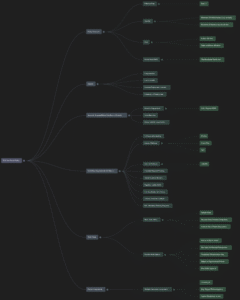TCS New Bench Policy: Briefing information
I. Executive Summary
TCS New Bench Policy: Tata Consultancy Services (TCS) has implemented a significant new “associate deployment policy,” effective June 12, aimed at drastically reducing employee idle time and optimizing workforce utilization. The core of this policy mandates that employees be “billed for at least 225 days annually,” thereby limiting “bench time to 35 days per year.” This move is designed to align with “company’s organisational and individual performance goals” and carries substantial implications for employee compensation, career progression, and work arrangements. The policy also emphasizes mandatory upskilling during unallocated periods and a default shift back to in-office work.
II. Key Policy Changes and Implications

A. Bench Period Limitation and Utilization Mandate
- Mandatory Billed Days: Each employee is now required to have “a minimum of 225 billed business days annually.” This is a strict increase in the expected productive workdays.
- Reduced Bench Time: Consequently, the “bench time is limited to a maximum of 35 business days per year.” This significantly shortens the period an employee can remain unallocated to a project.
- Effective Date: The policy became effective on “June 12” of the current year.
B. Impact on Employees
- Compensation and Career Growth: Long periods of being unallocated “shall adversely impact associate compensation, career growth, avenues of overseas deployment in future, and continuity of employment with the organisation.” This directly links project allocation to employee progression and job security.
- Responsibility for Allocation: The policy explicitly states, “In the event an associate is unallocated, it is the primary responsibility of the associate to proactively engage with the Unit / Regional RMG for seeking allocation and take initiative towards pursuing suitable opportunities provided by the organisation.” This shifts the onus of finding work to the unallocated employee.
- Discouragement of Short-Term Assignments: TCS has “cautioned against frequent short-term allocations across various projects.” Such patterns may lead to “HR investigations and lead to disciplinary action,” indicating a preference for longer, stable project engagements.
C. Mandatory Upskilling During Unallocated Periods
- Daily Learning Requirement: While on the bench, “associates are expected to dedicate 4 to 6 hours daily for learning through internal platforms such as iEvolve, Fresco Play, and VLS, along with external platforms like LinkedIn.”
- Comprehensive Training: This includes completing “all required training,” attending “recommended in-person sessions,” and “regularly updat[ing] their skills.”
- Interview Preparation: Employees are also expected to “use TCS’s Gen AI interview coach, address interview feedback, and complete training programmes with full attendance.” This highlights an emphasis on readiness for new assignments.
D. Work-from-Office as Default
- Compulsory Physical Presence: “To enable faster project deployment, TCS has made physical office presence compulsory.”
- Limited Flexible Work: “Work-from-home or flexible work arrangements are not generally permitted.”
- Exceptional Circumstances Only: Short-term flexible work options are only allowed “for personal emergencies in exceptional circumstances, subject to organisational policies and prior approval from the RMG.”
III. Policy Rationale and Oversight
- Aim for Workforce Utilization: The policy’s overarching goal is to “reduce idle time and ensure better workforce utilisation.” This suggests a strategic move to maximize efficiency and productivity from its large employee base.
- Organizational and Individual Performance Alignment: The policy is designed “in line with the company’s organisational and individual performance goals,” indicating a unified approach to productivity.
- Resource Management Group (RMG): Chandrasekaran Ramkumar, global head of TCS’s Resource Management Group (RMG), outlined the updated policy. The RMG’s role is crucial, as it “handles talent deployment across the company” and is “responsible for ensuring that associates are continuously engaged in client projects.”
IV. Unanswered Questions/Future Considerations
- The source does not include a direct comment from TCS regarding the new policy, as “An email sent to TCS seeking comments on the new policy did not receive a response till the time of going to press.” Further statements from the company would provide more insight into the rationale and expected outcomes.
- The specifics of how “unallocated resources are defined” as “those who are released to RMG, available for new assignments, and currently reporting to RMG” will be critical for employees to understand their status.
- The practical implications and enforcement mechanisms for the mandatory upskilling and the “4 to 6 hours daily” learning requirement during bench periods will need to be closely monitored.
- The full impact on employee morale and retention, particularly given the strict nature of the policy and the shift away from flexible work arrangements, remains to be seen.
For more information about this please visit the Times of India official news website.
For more information about Job Notifications, Open source Projects, Tech updates and Interview questions, please stay tuned TechCareerHubs official website.







